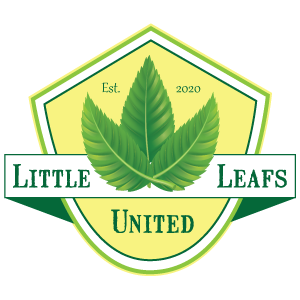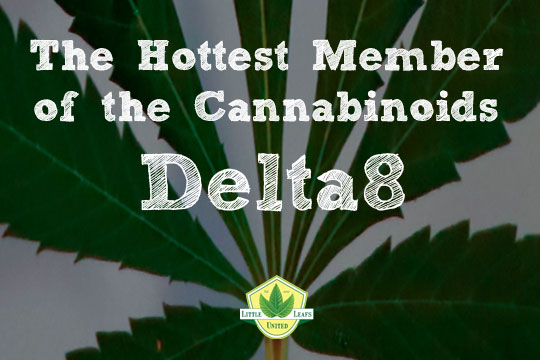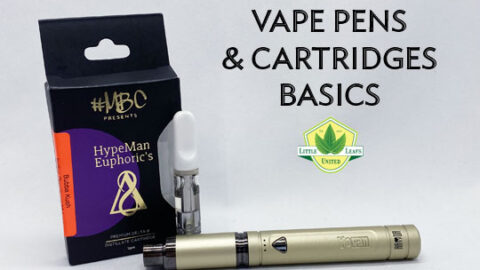The cannabis community is head over heals with the new exciting hemp derived Delta-8 THC. Thanks to the 2018 Farm Bill that separated the term hemp from marijuana thus declassifying hemp from illegal status to legal status with the inclusion of all hemp derived cannabinoids this has brought some exciting new products to the mainstream market. Thru these legislative rulings it has heightened the state of familiarity with various cannabinoids terms that grow on cannabis like CBC, CBG and THCV. Now in 2020 we are all familiar with terms like THC and CBD so now before we get into this exciting hemp derived Delta-8 THC let’s first learn a little about THC to better put things in context.
THC is probably the most famous or known cannabinoid in cannabis. It is known for that high that you feel when smoking it or ingesting it. The proper name of the THC that gets us “high,” is Delta-9 THC. However, very few know that delta-9 is not the only type of THC, and it’s not even the only type with psychoactive effects. Even how THC is introduced into the body has notable difference to the type of high your body feels.
There is a distinct difference in the type of high that you get when you smoke versus edibles. The method in which the body processes THC and the conversion in your body creates a different compound and that is difference of how that high and how it effects you.
An edible high tends to give off heavier body feeling effect and more intense cerebral stimulation and for some hallucinations. When you smoke marijuana, THC travels through you lungs, into your blood stream and then to the brain. Even though your lungs filter almost half of it 50-60% still make the blood brain barrier to make you high. The whole process happens quite quickly and you can feel it’s effect immediately and will wear off in an hour or two
The terminology and science of cannabinoids is relatively new to the main stream consumer market and terms relating to these compounds are still evolving. To easier discuss the science to the general public these terms have been shortened to THC (tetrahydricannabinol) and CBD (cannabidiol). To the general public it simply relates to a distinction of what would get one high and one that you cannot get a high from but both offering amazing benefits that appeal to the health of the consumer in a mother nature format. Most consumers are still learning that there are different arrangements of both THC and CBD that is a more targeted approach to managing ones needs.
Delta- 8
Hemp derived Delta 8 is the legal alternative to the federally compounded Delta-9 THC that is structurally similar to Delta-9 THC with a slightly different arrangement of atoms that create some key differences. The most notable difference is when combining Delta-8 THC with CBD the psychoactive effects are far more diminished than it’s parent cannabinoid Delta-9 THC. By reducing the psychoactive properties you then are left with a more focused and energetic compound while maintaining it’s euphoric effects.
Delta-8 can be psychoactive for some consumers, just less so than delta-9. A good way to think about it generally is something like the “Weed Light”: many of the effects and benefits of delta-9, though toned down a few steps. It is still euphoric and stimulates appetite. It can energize or relax the consumer depending on the larger terpene and cannabinoid profile, similar to delta-9. And yes, it can induce some of the typical heady, psychoactive experience.
The main difference is that while delta-8 can do all of these things, it does them with less intensity. Even for experienced cannabis users, there is a noticeable effect, albeit a less intense one. However, the trade-off here is that the potential are also reduced. Delta-8 tends to be less racy, as mentioned, but what happens aside from the high?
These effects have yet to be studied at length, but user-experience shows promising signs. The compound is even known to the , which notes that it has, “antiemetic, anxiolytic, appetite-stimulating, analgesic, and neuroprotective qualities.” Delta Effex describes delta-8 THC as “sort of a middle ground between hemp, CBD and THC-delta-9,” and that seems to be as perfect a description as we’ve encountered.
Delta-8’s unique properties lend themselves to a variety of uses and situations. For the cannabis-curious, it can act as a bridge to acclimating to other cannabinoids. Especially in today’s market, many nascent cannabis consumers find delta-9 can sometimes be to enjoyable. This is especially true in the case of edibles, but for flower and vapes as well, depending on the consumer. As Delta Effex explained, “Delta-8 offers a way to try some of the effects of delta-9, without diving headlong into a full high experience.”
While many people use cannabis to help with social anxiety, delta-9 effects tend to be too racy or hard to focus under certain circumstances. When clarity is higher on the priority list, a regular cannabis consumer might reach for delta-8 above delta-9.
Also, as mentioned, delta-8 is available to consumers who might not otherwise be able to try delta-9 THC. While some states may have individual restrictions, Delta-8 cannabinoids are completely hemp-derived and thus fall under the legislation of the . In accordance with the bill’s guidelines, delta-8 preparations contain less than .3% delta-9 THC.
The differences in name and how it is sourced may seem like small details, but they change how delta-8 is handled legally. In the United States, the hemp derivation and lack of delta-9 THC ideally put preparations into the same class as CBD products.
Currently, there is some debate underway about proposed guidelines that would alter the definition of permitted hemp preparations if the precursor ingredients have higher THC levels than allowable. Comments are ongoing at this time, so check back with Little Leafs United as the matter develops. Currently, this matter does not appear to affect delta-8 preparations.
Unlike delta-9 THC, delta-8 itself currently has no federal scheduling. However, it is possible to from use of delta-8, as those tests do not test for specific types of THC, but rather THC metabolites. THC metabolites are the result of the body processing any form of THC. Think of it as finding a Popsicle stick: you know someone ate a Popsicle, but can’t tell the exact flavor. Is the red from strawberry or cherry? If you need to pass a drug test, just be aware.
In conclusion, the Little Leafs out there are excited to welcome another new and exciting discovery that mother nature has kindly given us. We will be exploring more of Delta-8 brands, processes and how you can get a hold of this newbie in the market place.
Delta-8 offers much more mild effects than Delta-9, but more intense effects than CBD.
Regardless, always do your own research and vetting on the legal standing of any cannabinoid in your area before consuming or purchasing a product. Laws are varied and complex, and we at Little Leafs United are in no way giving legal advice.









